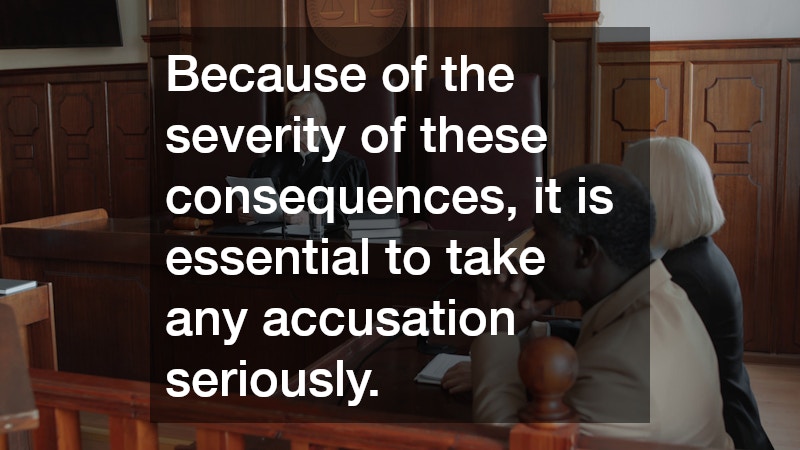
Facing domestic violence charges can be an incredibly stressful and life-altering experience. Even a single accusation can lead to criminal charges, restraining orders, or significant personal and professional consequences. Navigating this complex legal landscape on your own can be overwhelming, which is why enlisting the help of a skilled domestic violence attorney can make a crucial difference in the outcome of your case. Understanding how a domestic violence attorney works to get charges dropped can provide clarity and hope during an otherwise daunting process.
Understanding Domestic Violence Charges
Domestic violence charges encompass a broad range of behaviors, including physical assault, threats, harassment, stalking, or emotional abuse against a spouse, partner, or family member. The legal consequences vary depending on the jurisdiction, the severity of the allegations, and whether there is prior criminal history.
These charges are taken seriously by courts and can result in jail time, fines, mandatory counseling, and restrictions on contacting the alleged victim.
Because of the severity of these consequences, it is essential to take any accusation seriously. While some charges are straightforward, others may arise from misunderstandings, miscommunications, or even false allegations. This is where a domestic violence attorney becomes indispensable.
Investigation and Evidence Gathering
One of the first steps a domestic violence attorney takes is a thorough investigation of the case. This often involves gathering evidence, reviewing police reports, and interviewing witnesses. An attorney can identify inconsistencies in statements, procedural errors, or gaps in evidence that may weaken the prosecution’s case.
For instance, if law enforcement failed to follow proper protocol during the arrest or mishandled evidence, a domestic violence attorney could use these mistakes as grounds to challenge the charges. Similarly, surveillance footage, text messages, emails, or other digital communications can sometimes prove that an alleged incident did not occur as reported.
Negotiating with Prosecutors
Another key strategy involves negotiation with the prosecution. A domestic violence attorney can advocate on behalf of their client to potentially reduce the severity of charges or have them dismissed entirely. This could involve demonstrating that the alleged act was self-defense, that there was a lack of intent to harm, or that the evidence is insufficient to secure a conviction.
Attorneys may also negotiate alternative resolutions, such as diversion programs or counseling requirements, which can prevent a criminal record from forming. These negotiations require legal knowledge, experience, and tact, which is why representation by a skilled attorney can significantly improve the outcome.
Filing Pretrial Motions
Domestic violence attorneys are also experts in filing pretrial motions to challenge the legality of evidence or the validity of the charges themselves. Common motions include motions to suppress evidence obtained unlawfully, motions to dismiss based on insufficient evidence, or motions to reduce bail conditions. Successfully arguing these motions can sometimes lead to the charges being dropped before the case even reaches trial.
Providing Legal Guidance and Support
Beyond the courtroom strategies, a domestic violence attorney provides critical legal guidance throughout the process. They ensure that clients understand their rights, obligations, and potential consequences. Many individuals make the mistake of speaking to law enforcement or posting on social media without fully understanding the legal implications. A knowledgeable attorney can prevent these missteps and advise on the safest ways to communicate with all parties involved.
Understanding the Importance of Timing
Timing is crucial in domestic violence cases. Immediate action often makes a significant difference in how the case unfolds. Contacting a domestic violence attorney as soon as possible allows them to start building a defense, gather evidence, and potentially negotiate with the prosecution before charges escalate. Delaying legal representation can limit the options available for having charges dropped or reduced.
The Emotional and Professional Impact
The stakes in domestic violence cases extend beyond legal penalties. Accusations can have severe emotional and professional consequences, affecting relationships, employment, and reputation. A domestic violence attorney not only advocates legally but also helps clients navigate the personal ramifications of the charges. By handling communications with law enforcement, the courts, and the alleged victim, the attorney can reduce stress and ensure that the accused’s side of the story is accurately presented.
Conclusion
Domestic violence charges are serious, and facing them without experienced legal counsel can be overwhelming and risky. A domestic violence attorney plays a pivotal role in investigating allegations, negotiating with prosecutors, filing pretrial motions, and guiding clients through the legal process. Their expertise can be the difference between facing a criminal record or having charges dropped, allowing individuals to protect their rights, their freedom, and their future.
Engaging a skilled domestic violence attorney promptly is often the most effective step in addressing accusations and pursuing the best possible outcome. In such high-stakes situations, professional legal guidance is not just helpful—it’s essential.



